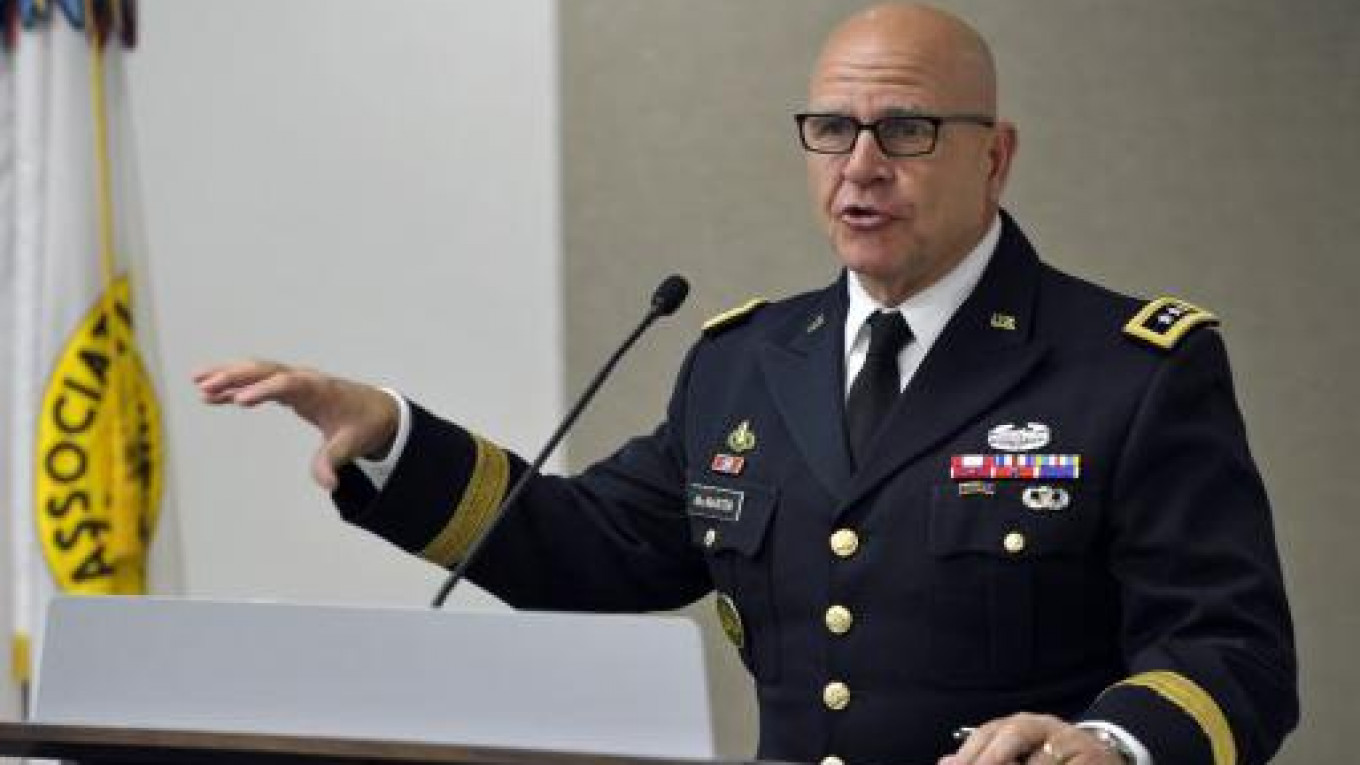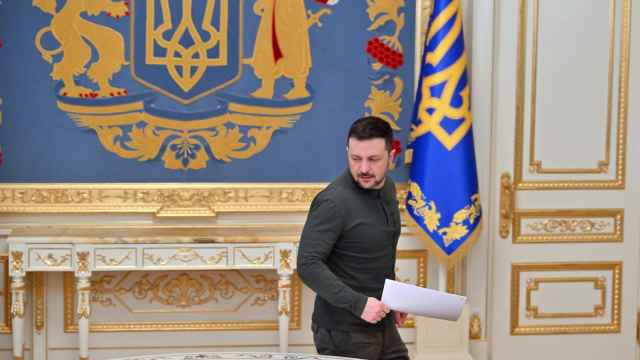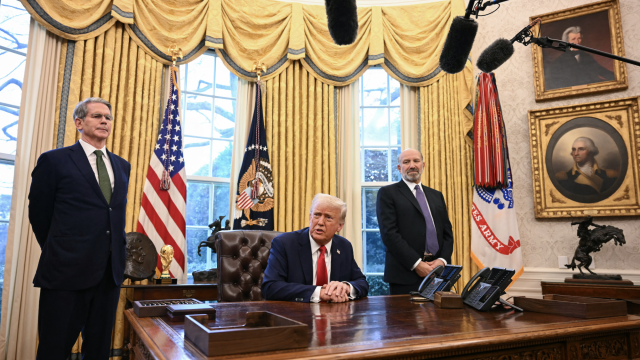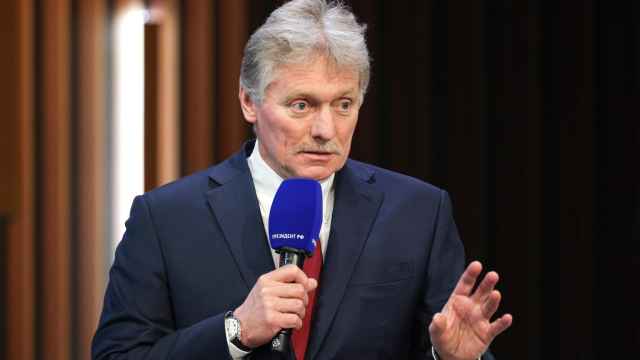One week after former National Security Advisor Michael Flynn resigned from his post, President Donald Trump has appointed General Herbert Raymond McMaster to replace him. McMaster’s world view is diametrically opposed to the one Flynn brought to the White House. His appointment may be the final nail in the coffin for Moscow’s dream of a speedy detente with Trump.
While the sheer number of generals on Trump’s presidential cabinet might have been cause for concern — cue Russian trolling of a junta in Washington — McMaster has the makings of a media darling in the vein of Defense Secretary James Mattis. Profiles of the new national security advisor describe him as an iconoclastic philosopher-general who can wield a rifle in one hand while reciting Clausewitz from the other.
It is difficult to say exactly what kind of policies on Russia McMaster might spearhead. Like Mattis, he has a reputation as a serious defense thinker. He is best known for scathing critiques of Vietnam and rewriting the book on combating insurgencies in Iraq and Afghanistan. At times, he has warned Russia could seriously challenge U.S. military and political dominance in Europe.
In recent years, he headed up the U.S. Army Capabilities Integration Center, a sort of in-house think tank. His job there was to analyze strategy and defense trends of potential U.S. adversaries, and draw up recommendations for how the U.S. should prepare for future wars. In this role, he’s been involved in some big-picture rethinking of American defense posture.
No Stranger to Russia
In early 2016, McMaster published a report on modern Russian warfare techniques and abilities. His co-authors took several unannounced trips to front lines in Ukraine conflict to study the tactics of Russian-backed rebel forces. The subsequent report estimated that the U.S. military was outmatched by Russian electronic warfare and cyber capabilities.
McMaster has since accused Russia of waging an offensive campaign against the post-WWII international order. At an event hosted by the Center for Strategic and International Studies (CSIS) in Washington last May, he said that Russia’s efforts in Ukraine were a “sophisticated campaign” consisting of “conventional forces as a cover for unconventional action.”
The new Russian doctrine of warfare, McMaster said during his talk at CSIS, combines military action with manipulating of public perception as part of “a broader effort to sow doubt… across [NATO].” Moscow’s goal is not defensive, but offensive, he said. It wants to replace the Western political and economic order “with something more sympathetic to Russian interests.”
His assessment of Moscow’s intentions and ability to act on them mirror those of Mattis. But they appear to be at odds with Trump’s rhetoric toward Russia and its leader, Vladimir Putin. His views are also opposed to those held by Flynn, who appears to have seen eye-to-eye with Trump on Russia. That Trump appointed McMaster anyway suggests he doesn’t care.
Russian Reaction
McMaster’s appointment is a disappointment for Russia, which is already concerned that chaos in Washington is working against them. Moscow’s enthusiasm for Trump has been sharply reined in following Flynn’s ouster. Russian politicians lashed out at an alleged Obama-led anti-Russian shadow government preventing Trump from lifting sanctions and restoring ties.
But overall the reaction has been muted, following a general toning-down of Trump-related coverage in the Russian media over the past week. The same voices that decried the fall of Flynn have been silent on McMaster so far.
Russian reports on the appointment have been largely restrained. But there have been hints of discontent. Some Russian publications referred back a call from McMaster in 2015 for a “forward deterrent” against Russia in Ukraine. And a TASS profile concluded that Trump’s desire for a detent would soon clash with McMaster’s “rigid” views.
According to international affairs analyst Mikhail Troitskiy, “McMaster, unlike his predecessor, is an advocate of pushing back against Russian actions in Ukraine and in cyberspace.”
Beyond talk of containment, Russia’s silence is understandable. Outside the military, few in Moscow are too familiar with the new national security advisor. The Kremlin is likely to be concerned with his role in studying Russian tactics in Ukraine, says foreign affairs analyst Vladimir Frolov. “But, otherwise, he’s a blank slate for us when it comes to policy.”
At the same time, says Frolov, what Moscow does know about McMaster is that he is not the zealous proponent of total war against radical Islam that Flynn was. This limits room for a detente. Russia was hoping Trump and his advisors would see radical Islam as the ultimate threat, and trade Ukraine-related sanctions for Moscow’s assistance in the Middle East.
That, it seems, is not to be. McMaster’s appointment signals the Trump administration’s normalization on questions of national security policy. While McMaster is seen as a disruptive, sometimes controversial thinker, he is not a radical. He may bring an end to the dysfunction on the national security front in Washington.
Russia is not yet ready to give up hope on Trump. While public rhetoric has been toned down, the Kremlin is withholding judgement on Trump until Putin meets him in person.
“There will still be hope for a new ‘reset,” Troitskiy says.
A Message from The Moscow Times:
Dear readers,
We are facing unprecedented challenges. Russia's Prosecutor General's Office has designated The Moscow Times as an "undesirable" organization, criminalizing our work and putting our staff at risk of prosecution. This follows our earlier unjust labeling as a "foreign agent."
These actions are direct attempts to silence independent journalism in Russia. The authorities claim our work "discredits the decisions of the Russian leadership." We see things differently: we strive to provide accurate, unbiased reporting on Russia.
We, the journalists of The Moscow Times, refuse to be silenced. But to continue our work, we need your help.
Your support, no matter how small, makes a world of difference. If you can, please support us monthly starting from just $2. It's quick to set up, and every contribution makes a significant impact.
By supporting The Moscow Times, you're defending open, independent journalism in the face of repression. Thank you for standing with us.
Remind me later.






